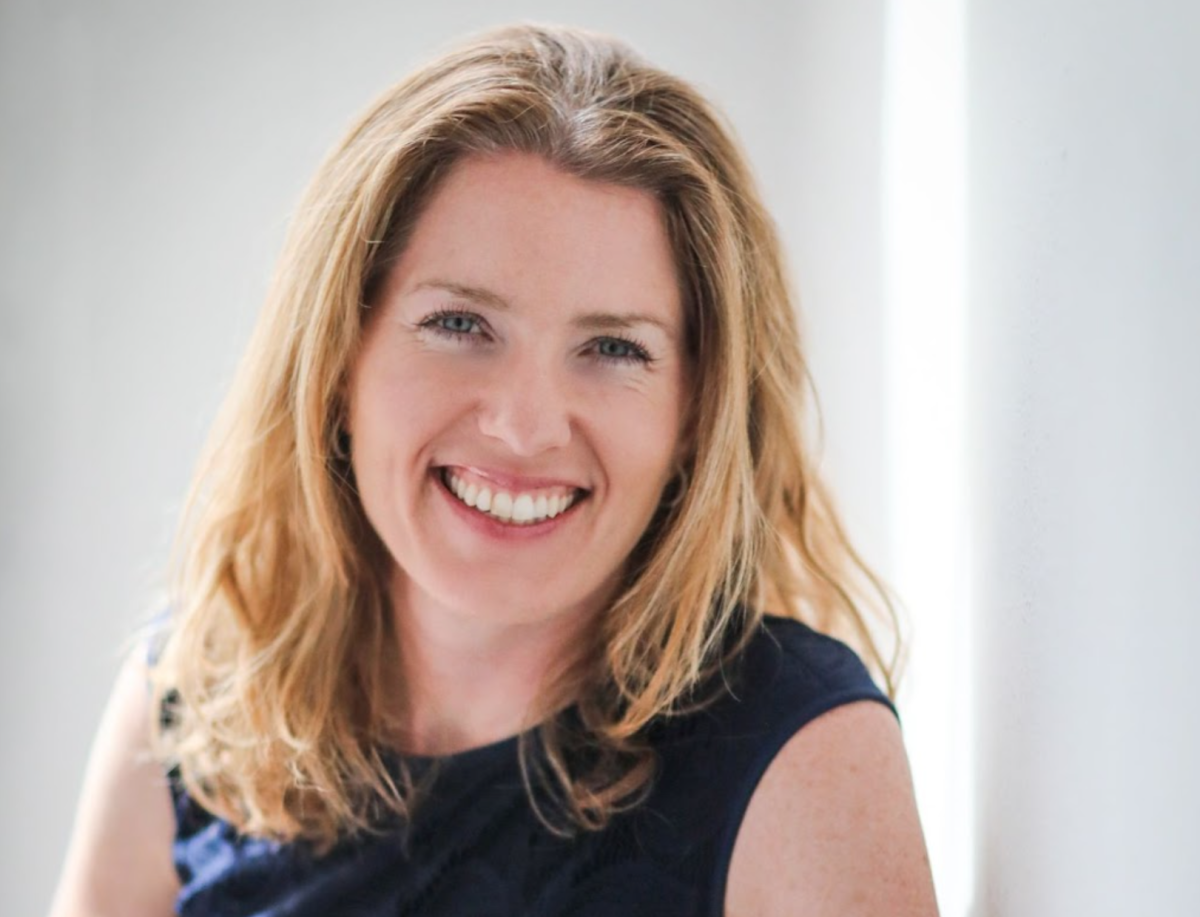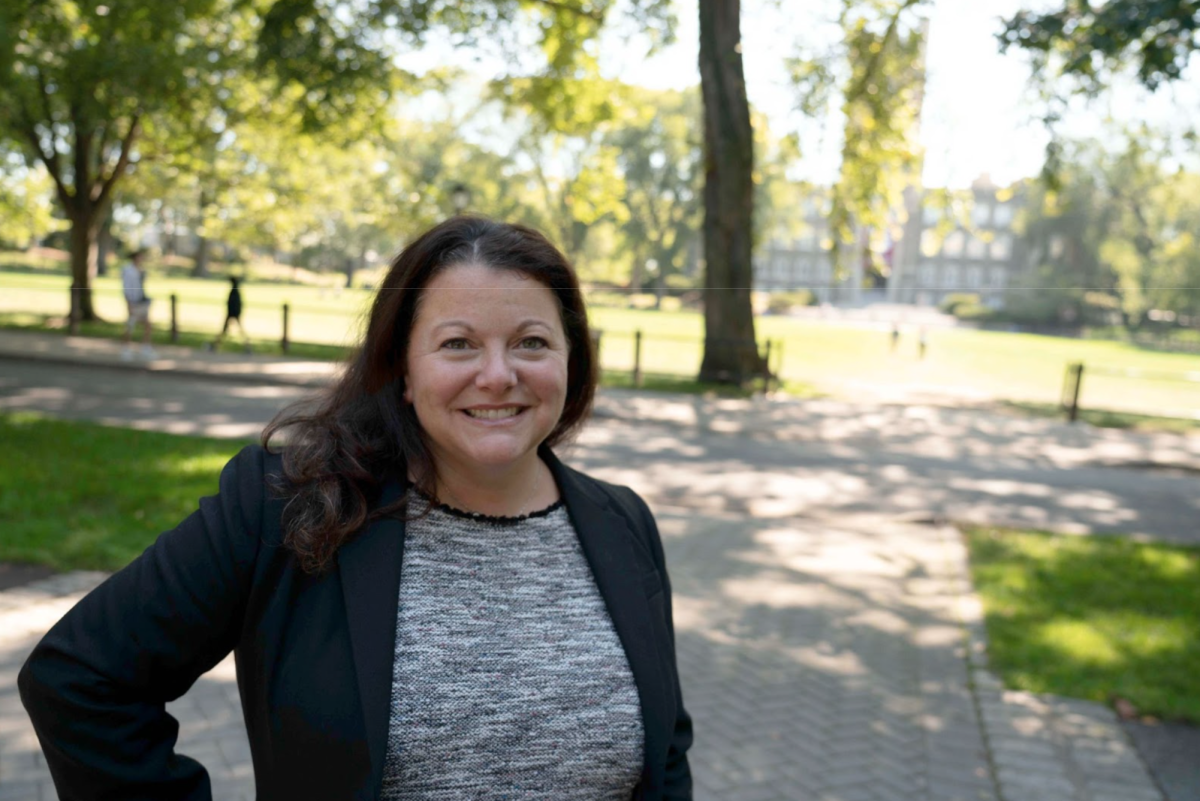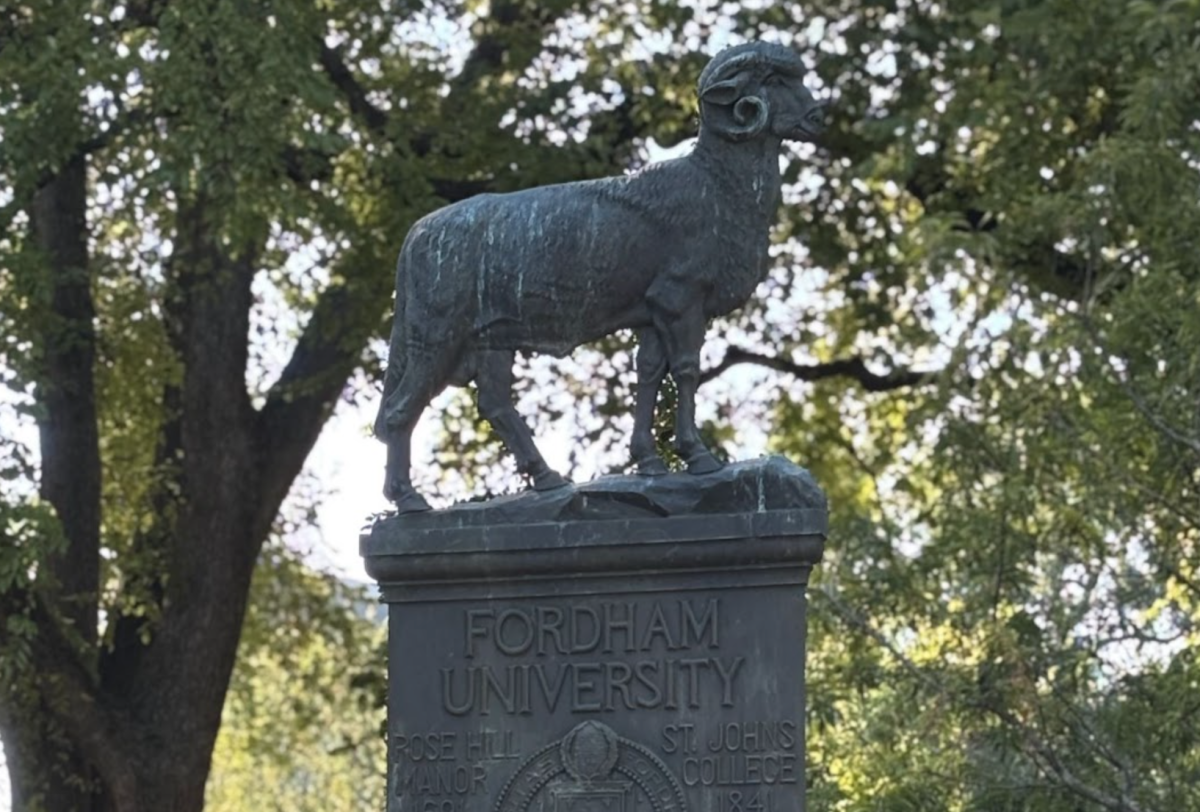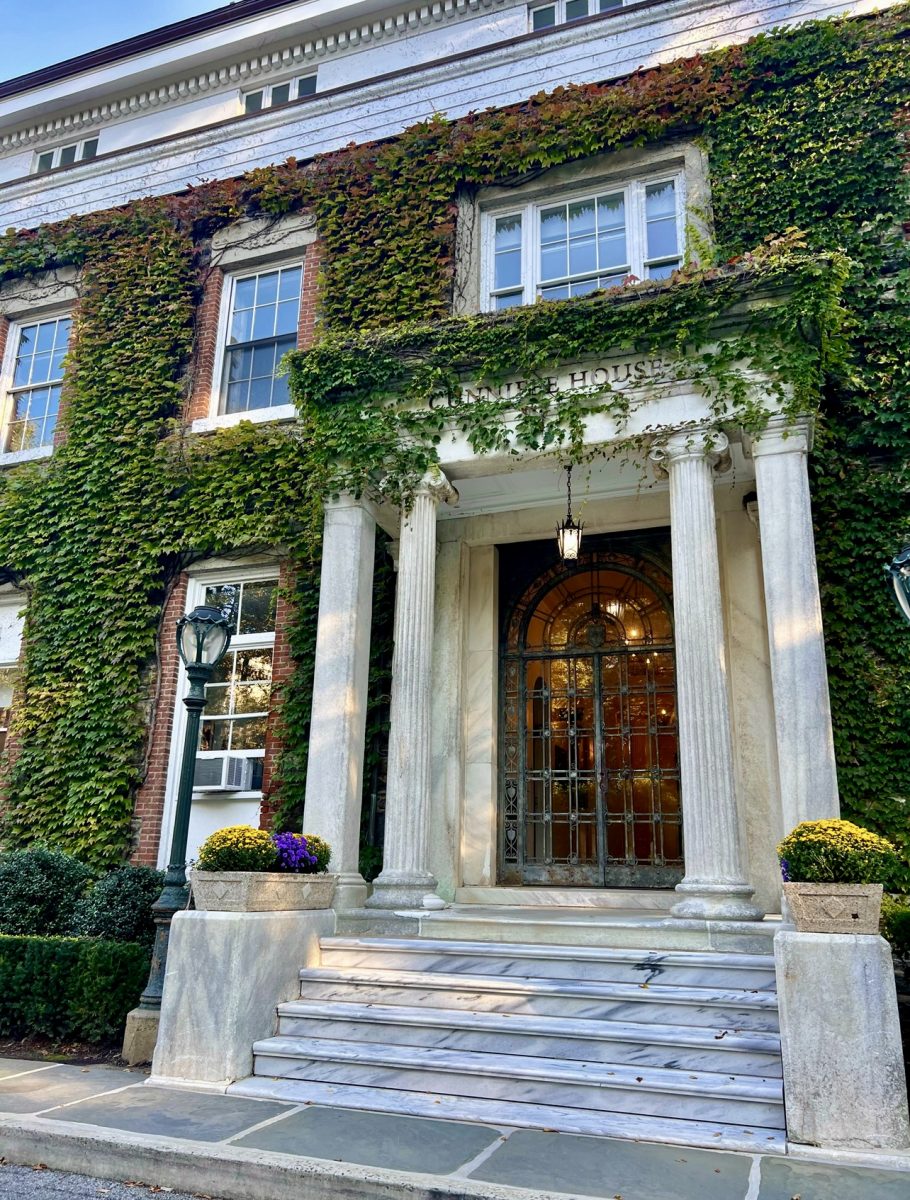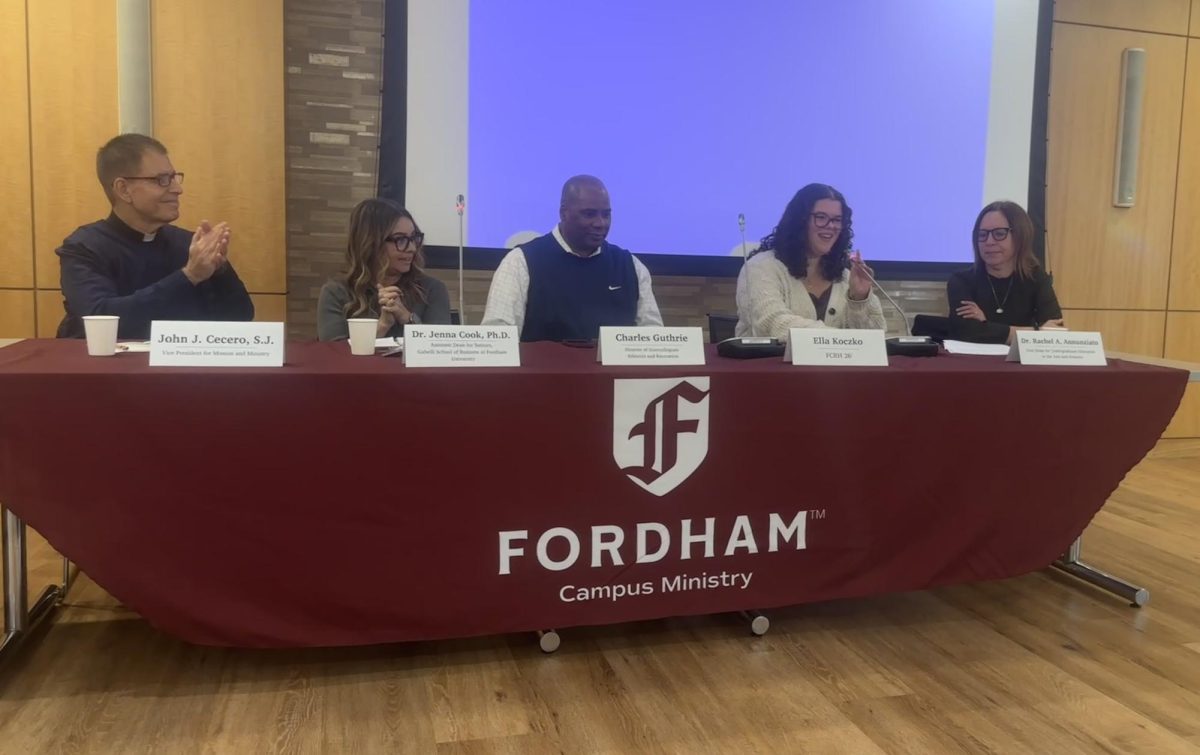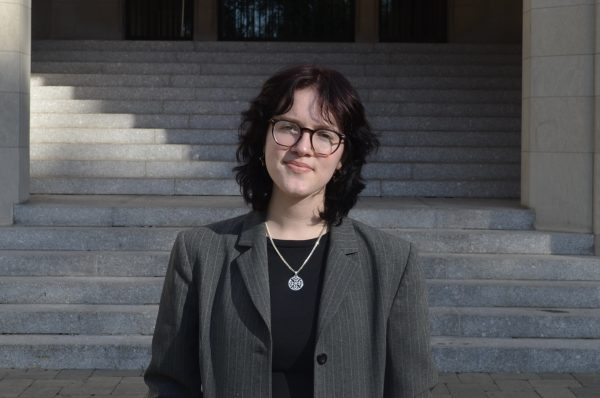Fordham University President Tania Tetlow met with members of The Fordham Ram and The Observer on Oct. 16.
The conversation included discussion of the Arts and Sciences Restructuring, Fordham’s upcoming Science, Technology, Engineering and Mathematics (STEM) and Artificial Intelligence (AI) offerings, the University’s updated brand and more.
The meeting began with a discussion of Fordham’s Arts and Sciences restructuring and Tetlow’s desire to further unify the Rose Hill and Lincoln Center campuses.
“ I’m hoping to never hear again within a few years from a Lincoln Center student at their graduation that it’s the first time they’ve been to Rose Hill, or from Rose Hill students that they’ve never been to Lincoln Center,” she said.
Previously, four deans led the school of Arts and Sciences, none of whom answered to each other. According to Tetlow, this led to issues with class schedules and difficulties transferring between classes. Now the university has one dean of Arts and Sciences, Jessica Lang, who has four vice deans answering to her.
“ I’m very excited for our new dean and very excited about the progress I hope she can quickly make to really unify the campuses academically,” Tetlow said.
Beyond the school of Arts and Sciences, the university is also going to be expanding its technology-oriented offerings. In addition to the new STEM building at the Rose Hill campus, a new AI research incubator is set to be built at Lincoln Center, thanks to a $1 million donation by an alumnus.
Tetlow discussed how the university is handling the AI boom and how it could be integrated into classes. The Gabelli School of Business just launched a Master’s of AI, and some Fordham Law classes are piloting the use of AI for legal writing.
“[What] we’re thinking about with undergraduate [is] how to both navigate AI and teaching,” said Tetlow. “[And the] faculty themselves really have the autonomy to decide that. They are piloting it in different ways, whether to insist that you not use AI so that you can learn basic skills without it, or teach you how to use it. And you need a mix of both.”
The president also provided details about the rebranding that occurred over the summer. According to Tetlow, the Association of Jesuit Colleges and Universities surveyed members of Gen Z and their knowledge of what it means to be “Jesuit” and what they care about, and the conclusions they drew impacted Fordham’s rebrand.
“What we learned is that fewer and fewer young people know who we are. [And we] assume that we can say ‘Jesuit’ and from that our audience will understand academic excellence and social justice, and brilliant teaching, and all the rest. [But] we can’t rely on that anymore,” Tetlow said. “ Changing the ‘F’ is the least of it. It was really about developing … a language to describe who we are in our Jesuit identity, which is how we stand out. It is what matters most about us, but to translate it into the language of a younger generation in a way that will resonate with them.”
The rebranding process tested various forms of messaging through focus groups. According to Tetlow, the conclusion Fordham came to is that they need to double down on their Jesuit identity, but they need to explain it more clearly. It’s too early to know the impacts of the rebrand, but the president shared that the University has seen an increase in applications this year.
Tetlow also discussed the recent U.S. News and World Report rankings, which had Fordham drop from 91 to 97. She said that U.S. News has shifted the criteria over the years, which has harmed private universities.
“We focus on rankings because we know that it still matters to some, and we focus on the areas that aren’t a distraction from core mission, but where we agree that they matter. And for us, a lot of that is about retention and graduation rate,” she said. “Right now, our focus is on getting the admission rate down because while that’s no longer part of the rankings, we do know that something students look to as they’re choosing a school.
While the university has seen an uptick in applications, there has been a decline in international applicants from India and China, primarily in the graduate school. Last semester, Fordham started a task force in reaction to the visa revocations that were taking place across the country, and they have continued supporting students into this year. According to Tetlow, international students had the same rate of visa success as last year.
“This year I spoke to the orientation for incoming international students to make very clear to them personally how eager we are for them to be with us — of how welcome they are as full members of our community, how we are better because we have people from all over the world to teach us all about the fact that we are not the only nation in the world,” she said.
Tetlow did discuss rising costs nationwide, but did not definitively say whether or not tuition will increase this year.
“The ball game for us is providing the excellence you deserve at a price we hope you can afford,” she said. “And that is a more and more miserable process every year.”
In reference to federal funding cuts to student aid, Tetlow said that she wished more attention had been given to the government’s efforts to cut back on financial aid.
“[It was] the most shortsighted move in the world to cut back on educational opportunity in this country,” she said.









































































































































































































